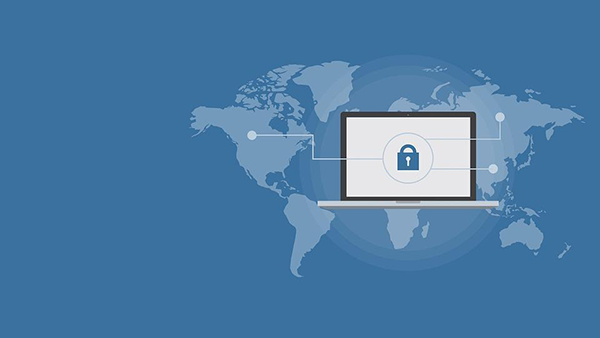In today’s digital age, safeguarding your network from cyber threats is more crucial than ever. With the rise of technology and the increasing frequency of cyberattacks, individuals and businesses alike must adopt robust security measures to protect sensitive information. Whether you’re a small business owner, a remote worker, or an individual user, understanding the fundamental steps to fortify your network can significantly mitigate risks. This blog post outlines essential tips to help you defend your network against cyber threats effectively.

Understand Common Cyber Threats
To effectively protect your network, it’s crucial to understand common cyber threats such as malware, phishing, ransomware, and DDoS attacks. Malware can infiltrate your system and cause damage, while phishing schemes trick users into revealing sensitive information. Ransomware locks your data until a ransom is paid, and DDoS attacks overwhelm your network with traffic. While learning about these threats is important, implementing network optimization tips and professional help ensures that your system remains secure and efficient. Professionals can identify vulnerabilities and set up preventive measures that go beyond basic protection. With experts handling your network security, you can reduce the chances of a breach and maintain a streamlined, well-optimized network that is less prone to disruptions or attacks.
Regularly Update Your Software and Systems
One of the simplest yet most effective ways to protect your network is by keeping your software and operating systems up to date. Software developers frequently release updates and patches to address security vulnerabilities. Ignoring these updates can leave your network exposed to potential threats. Set your devices to automatically install updates, or establish a regular schedule for manually checking and applying updates. By ensuring that your software is current, you can protect your network from known vulnerabilities that cybercriminals might exploit.
Utilize Strong Passwords and Authentication Methods
Weak passwords are one of the most common security flaws that can compromise your network. To enhance your security, create strong, complex passwords that include a mix of letters, numbers, and special characters. Avoid using easily guessable information, such as birthdays or common words. Additionally, consider implementing two-factor authentication (2FA) for an extra layer of security. 2FA requires users to provide a second form of verification, such as a code sent to a mobile device, in addition to their password. This significantly reduces the risk of unauthorized access, even if a password is compromised.
Invest in a Reliable Firewall
A firewall acts as a barrier between your internal network and external threats, monitoring incoming and outgoing traffic. Investing in a reliable firewall is essential for protecting your network from unauthorized access. Firewalls can be hardware-based, software-based, or a combination of both. Ensure that your firewall is configured correctly to block potentially harmful traffic while allowing legitimate communication. Regularly review firewall logs to identify any unusual activity and adjust your settings as necessary. By implementing a robust firewall, you can fortify your network’s defenses against cyber threats.
Implement Network Segmentation
Network segmentation involves dividing your network into smaller, manageable segments, each with its security controls. This strategy minimizes the risk of a cyberattack spreading throughout the entire network. For example, you might separate your guest Wi-Fi network from your business network, ensuring that visitors cannot access sensitive data. Segmenting your network can also help you identify and contain breaches more effectively. If one segment is compromised, you can isolate it from the rest of the network, reducing the potential impact of a cyber incident.
Educate Your Team
Human error is often a significant factor in cyberattacks. Educating your team about cybersecurity best practices is vital for safeguarding your network. Conduct regular training sessions to raise awareness about common threats, such as phishing attacks and social engineering tactics. Encourage your team to report suspicious emails or activities promptly. By fostering a culture of cybersecurity awareness, you empower your employees to take an active role in protecting your network. Remember that everyone in your organization plays a part in maintaining security, from management to entry-level employees.
Regularly Back Up Your Data
Data loss can occur due to various reasons, including cyberattacks, hardware failures, or natural disasters. To protect against data loss, it is essential to implement a robust data backup strategy. Regularly back up your critical data to a secure location, such as an external hard drive or a cloud-based service. Ensure that your backups are encrypted and regularly tested to confirm their integrity. In the event of a cyber incident, such as ransomware, having reliable backups can save your organization from significant financial loss and downtime.
Monitor Network Activity
Continuous monitoring of your network is essential for detecting and responding to potential threats in real time. Utilize network monitoring tools to track traffic patterns, identify anomalies, and receive alerts for suspicious activity. Regularly review logs for any unauthorized access attempts or unusual behavior. Implementing intrusion detection and prevention systems (IDPS) can further enhance your monitoring capabilities, automatically identifying and mitigating potential threats. By actively monitoring your network, you can quickly respond to incidents and reduce the impact of cyber threats.

Protecting your network from cyber threats requires a proactive and comprehensive approach. By understanding common threats, regularly updating software, utilizing strong passwords, investing in firewalls, segmenting your network, educating your team, backing up data, and monitoring activity, you can significantly enhance your network’s security posture. In an era where cyber threats are ever-evolving, staying informed and vigilant is key to safeguarding your sensitive information. Implement these essential tips today to fortify your network and minimize your risk of falling victim to cyberattacks. Also, learn about Google is Looking to Buy Cybersecurity Startup Wiz by reading this article.



